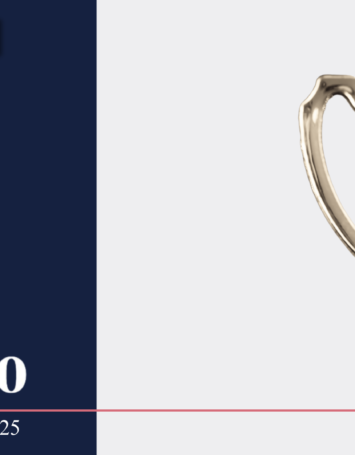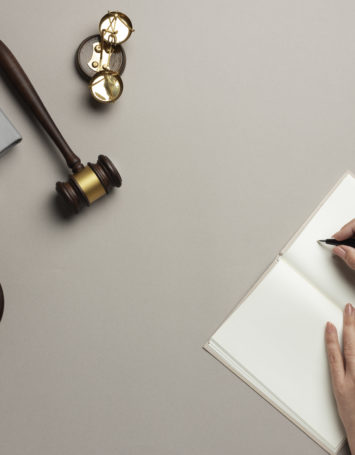Article by Clyde Shuman
A U.S. district court judge has ruled that Nicki Minaj’s song Sorry, a remake of the Tracy Chapman song Baby Can I Hold You, is protected by fair use and thus does not infringe Chapman’s copyright in the older song. In Chapman v. Minaj, Case No. 2:18-cv-09088-VAP-SS (C.D. Cal.), Judge Virginia A. Phillips, denying Chapman’s motion for partial summary judgment and granting Minaj’s competing motion, also held that a genuine issue of material fact existed with respect to Chapman’s claim that Minaj’s distribution of her new work to DJ Flex without Chapman’s permission also constituted copyright infringement, setting that issue over for trial.
By way of background, the following facts were undisputed: Chapman wrote her song Baby Can I Hold You in 1982 and obtained copyright registration for the song on October 20, 1983.
In 2017, Minaj agreed to work with the recording artist known as Nas on a re-make of a song entitled Sorry At the time, Minaj believed that Sorry was created by an artist named Shelly Thunder. Minaj began to experiment with Sorry before seeking a license but knew she would need a license to produce a song on an album eventually. Minaj did not intend to release a new work without securing an appropriate license first. This was customary practice—rights holders often request copies of new works during licensing discussions and prospective licensees usually include their proposed derivative works with their initial licensing requests. Chapman herself had requested copies of new works from prospective licensees.
Minaj’s representatives subsequently learned that Sorry was a cover to Tracy Chapman’s Baby Can I Hold You. Minaj’s new song incorporated a large number of lyrics and vocal melodies from Chapman’s song. Thus, on May 23, 2018, Minaj, through her representatives, began seeking Chapman’s clearance to publish the new work in Minaj’s then-upcoming album, Queen. Notwithstanding multiple requests, no license was granted.
Minaj told Nas that the song “was not gonna get cleared” by Chapman. On August 3, 2018, Minaj direct messaged the artist known as DJ Flex, telling him she had a record she wanted him to “world premier.” Minaj further told him that the particular song was “[n]ot going on [the] album either. No one will get it.” DJ Flex indicated that he would play the record on his show. The same day, Minaj sent Nas a copy of the latest mix of the new work. However, there is no record of Minaj sending DJ Flex a copy of the latest mix on that day.
One week later, Minaj followed up with DJ Flex about the show; DJ Flex confirmed that he would play the song the next day. On the same day, Minaj’s lead recording engineer arranged for the new song to be “mastered” with clean and explicit versions. The mastered work was sent to Minaj’s lead recording engineer via email.
The parties agreed that Minaj’s engineer never sends unreleased recordings of Minaj’s work to third parties without receiving instructions from Minaj to do so.
Minaj’s album, Queen, was released on August 10, 2018 without the new work. The following day, DJ Flex promoted the debut of the new work on social media. Minaj commented on DJ Flex’s post, stating that he was not to play any material that was not included on her album. Later that night, DJ Flex played a version of the new work titled, 01 Sorry – 72518 – master.mp3. He received that version of the song via text message.
On the merits, Judge Phillips first found that Chapman’s argument that Minaj violated her distribution rights, relied on several disputed or inadmissible facts. This included inconsistent testimony by DJ Flex, as well as his social media posts, which the court held were inadmissible hearsay. In addition, Judge Phillips found that other triable issues of fact would persist, including whether the version of Sorry played by DJ Flex was, in fact, Minaj’s song. Accordingly, per Judge Phillips, “These factual disputes raise triable issues of material fact that must be resolved by a jury.”
As to Chapman’s argument that Minaj violated her exclusive right to create derivative works, Judge Phillips agreed with Minaj that her creation of the new song constituted fair use. Addressing the factors identified by the Supreme Court in Campbell v. Acuff-Rose Music, Inc., 510 U.S. 569 (1994), Judge Phillips agreed that Minaj’s use of Chapman’s song “was not commercial even though there was some incidental commercial aspect of the work.” Judge Phillips based her finding on, inter alia, the undisputed facts that Minaj initially believed that Sorry was created by someone other than Chapman and that the initial purpose of Minaj’s use of the song was to experiment with it. Judge Phillips also noted the undisputed fact that Minaj knew she would need to seek a license to publish the new song and never intended to exploit the new song without a license (and did not do so). Judge Phillips specifically noted that Minaj excluded the new work from her album.
Judge Phillips further found that uprooting the common industry practice of experimenting with works before seeking licenses from rights holders and rights holders asking to see a proposed work before approving a license—a practice exploited by Chapman, herself—”would limit creativity and stifle innovation within the music industry.” Per Judge Phillips, “This is contrary to Copyright Law’s primary goal of promoting the arts for the public good.”
Judge Phillips also found that, although Minaj’s new work incorporated most of Chapman’s lyrics and parts of her vocal melodies, the portion of Chapman’s song that Minaj used was no more than that necessary to show Chapman how Minaj intended to use the song in the new work. Per the court, this also favored a finding of fair use.
Finally, Judge Phillips found that there was no evidence that Minaj’s new work usurped any potential market for Chapman. As she noted elsewhere in the opinion, Judge Philips said that there was only incidental commercial purpose behind Minaj’s new work of which Minaj did not attempt to exploit. Judge Phillips agreed with Minaj that “the creation of the work for private experimentation and to secure a license from the license holder has no impact on the commercial market for the original work.”
Summing, Judge Phillips found, “[o]n balance, [ ] that Minaj has met her burden of showing there are no genuine issues of material fact and that she is entitled to a finding of fair use as a matter of law. Minaj’s creation of the new work for the purpose of artistic experimentation and to seek license approval from the copyright holder thus did not infringe Chapman’s right to create derivative works.”



